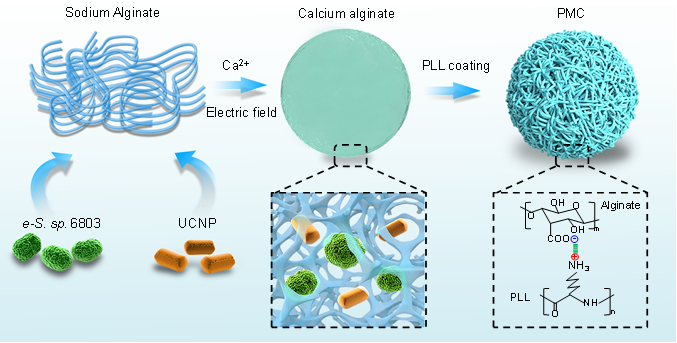While hypoxia promotes carcinogenesis, tumour aggressiveness, metastasis, and resistance to oncological treatments, the impacts of hyperoxia on tumours are rarely explored because providing a long-lasting oxygen supply in vivo is a major challenge. Herein, we construct micro oxygen factories, namely, photosynthesis microcapsules (PMCs), by encapsulation of acquired cyanobacteria and upconversion nanoparticles in alginate microcapsules. This system enables a long-lasting oxygen supply through the conversion of external radiation into red-wavelength emissions for photosynthesis in cyanobacteria. PMC treatment suppresses the NF-kB pathway, HIF-1α production and cancer cell proliferation. Hyperoxic microenvironment created by an in vivo PMC implant inhibits hepatocarcinoma growth and metastasis and has synergistic effects together with anti-PD-1 in breast cancer. The engineering oxygen factories offer potential for tumour biology studies in hyperoxic microenvironments and inspire the exploration of oncological treatments.
This work has been pulished in nature communications with the title of Engineering micro oxygen factories to slow tumour progression via hyperoxic microenvironments(https://doi.org/10.1038/s41467-022-32066-w)

Fig. 1 | Schematic displaying the critical steps of PMC construction. (i) homogenous mixing of algal microbes with UCNPs in alginate sodium; (ii) dispersing of alginate sodium solution into uniform droplets under an electrostatic fifield; (iii) encapsulating UCNPs and microbes by cross-linked alginate-calcium in CaCl2 solutions; and (iv) coating of alginate-calcium microspheres by poly-Llysine (PLL).